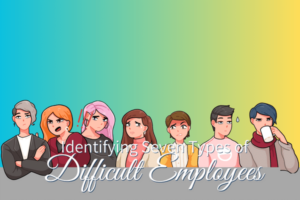In recent years, remote work has surged in popularity, driven by advancements in technology and a changing landscape of work culture. The ongoing COVID-19 pandemic accelerated this shift, with many organizations quickly transitioning to remote work to ensure the safety of their employees, with mixed results in terms of implementation. However, once the teething problems were overcome, many (if not most) employees grew comfortable with remote work, and resisted going back to the office. The remote work debate rages on, with passionate arguments from both employers and employees. In this blog post, we will explore the remote work debate from both perspectives, shedding light on the benefits and challenges faced by each group.
 The Employer’s Perspective
The Employer’s Perspective
While teams could obviously still meet over Zoom or Teams, many employers felt the loss of spontaneous opportunities for collaboration were a real issue for their businesses, especially if they were small, entrepreneurial companies.
Jake Wood, founder of the company Groundswell, said in a LinkedIn post in June 2023 said, “Top performers raise the performance of those around them. This is severely degraded when those top performers… are working from home. This renders much of the rest of the org operating in an inefficient capacity. New hires onboard more slowly. Junior employees don’t grow professionally.”
Rajesh Varrier, Infosys executive vice president of digital experience said in this article from Forbes, “Working in the office is not just about execution or production, it is also about establishing social capital. While work can happen anywhere, social capital must be built in person.”
Some employees instituted mandated office hours or days. Indeed according to the Forbes article, “The Unispace Global Insights 2023 study, reports that 72% of companies are mandating office returns.”
This has backfired a little, especially in unionised workplaces, for example the NAB where, as reported in the Guardian in July 2023, a deal has been struck with the Finance Sector Union that all employees can request work from home, and unreasonable rejection of requests can be appealed.
The Commonwealth Bank is experiencing pushback as well, where the Union has asked the Fair Work Commission to overturn a rule that all employees must spend at least 50% of their time in-office, stating that employees were not consulted on the change and that most believe they are more productive at home.
Employers also have other concerns such as their liability if employees suffer isolation or burnout, security including cybersecurity, and a lack of control in terms of projects and goals being met.
 The Employee’s Perspective
The Employee’s Perspective
Employees quote many benefits of working from home, including the flexibility of remote work, the money and time saved on commuting, being able to work from any location, a reduction in stress from office politics, and an increase in productivity.
Employees often feel attacked when being requested to return to the office, and make no secret of the fact.
Amanda Richardson, writing for Forbes, says, “In every office I’ve ever been in, the drama is real—and that’s after a potentially long commute to get there. It’s office politics, this person hates this executive, everyone knows you need to butter up so-and-so to get approval on this thing and better be in your seat at 5 p.m. so CEO Guy knows you’re “working hard.” At best, it’s the minor stuff—someone stole your lunch from the delivery shelf, dealing with that colleague who talks your ear off at the coffeemaker or conference rooms always full of perpetual lingerers—that ruins your day. At worst, it’s the major stuff like sexual harassment or outright discrimination.” She goes on to say, “As I’ve written about before, a blend is better. Bring people together in person when warranted. Treat people as adults who are best equipped to determine how they work as long as they produce results.”
So, Who Is Right?
The definitive answer is, “It depends.”
Under the Fair Work Act, employers do have the right to issue Return to the Office directives. But as we have seen, these are not well received by employees. And when we’re looking at the current employment market, it’s easy for employees to leave and find another job within a reasonable length of time, which apparently 68 percent of employees will do, according to a survey from Clarify Capital as reported by SHRM in this article.
A better means of asking your employees to return to work is to highlight the real benefits of doing so, alongside the mission, vision and values of your company.
According to HBR:
- 85% of employees would be motivated to go into the office to rebuild team bonds.
- 84% of employees would be motivated to go into the office if they could socialize with coworkers.
- 74% of employees would go to the office more frequently if they knew their “work friends” were there.
- 73% of employees would go to the office more frequently if they knew their direct team members would be there.
Tying your return into your mission, vision and values is a little more complex, but just as effective. Ask your employees if they are better able to fulfil the mission, vision and values in a full sense from home, or at work. Let them think the matter through. If you have a strong company mission and vision, and strong values, your employees will see the value of working in-office, at least some of the time.
In conclusion, the remote work debate is a complex issue with both employers and employees bringing valid concerns and advantages to the table.
Employers and employees need to work together to find a balance that accommodates both their needs. Hybrid work models, combining remote and in-office work, may be a potential solution. This approach allows organizations to reap the benefits of remote work while still maintaining some level of in-person collaboration and team-building.
It is up to everyone to adapt to the changing landscape of work in a way that benefits both parties and ultimately enhances productivity, job satisfaction, and overall well-being.






